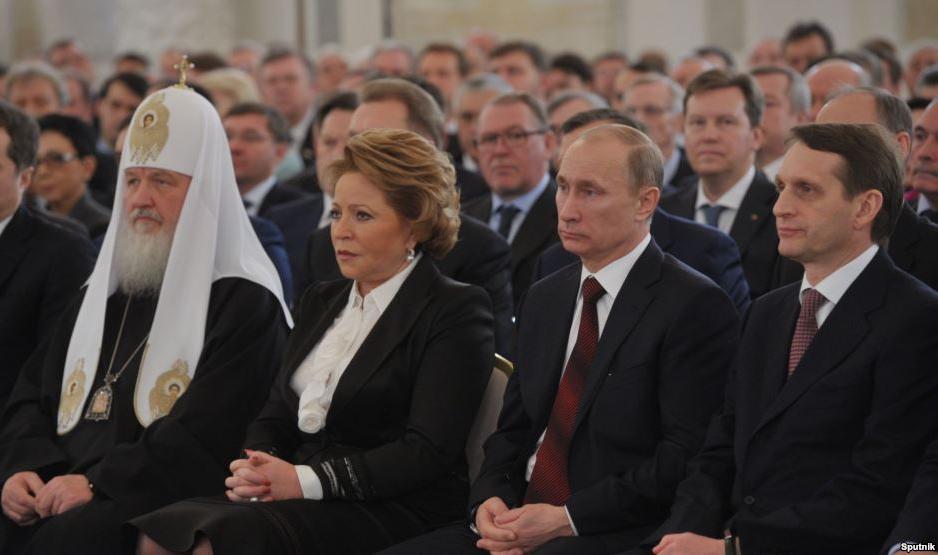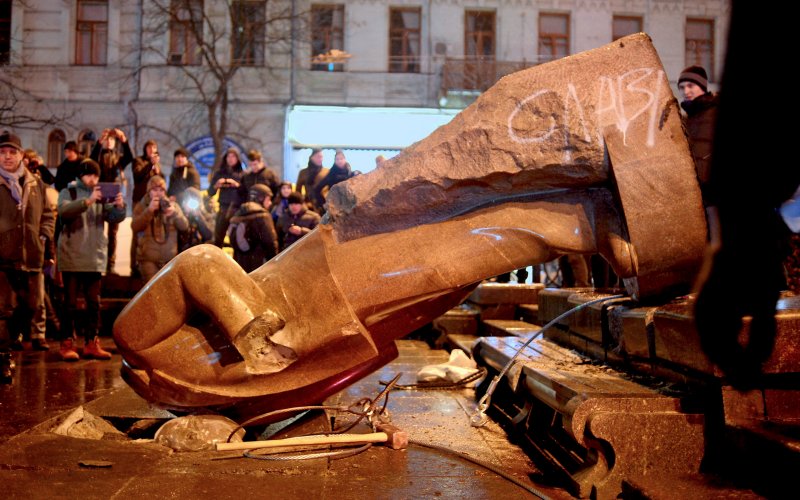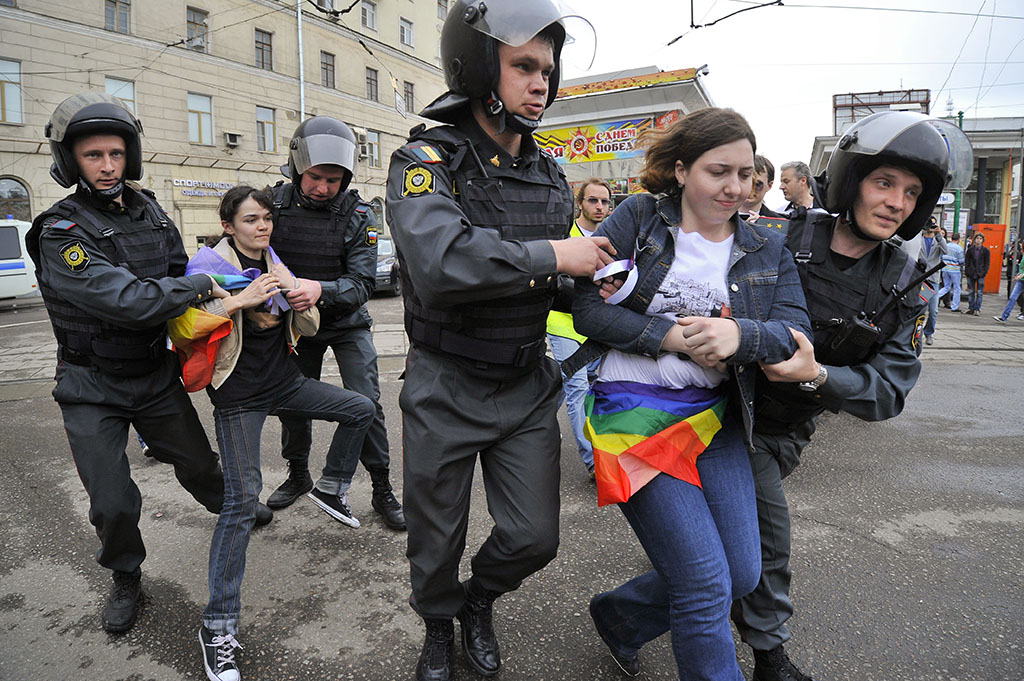The biggest Spanish newspaper El País wrote that Ukraine considers the cultural cycle at the prestigious Madrid Complutense University “Russian propaganda” and that the Ukrainian Ambassador asked the dean to cancel the event due to their “obvious anti-Ukrainian nature.”
As such, earlier this month, a number of lectures, expos, movie showing and round tables took place in Complutense condemning the “fascist regime in Ukraine,” blaming the “Kyiv junta” for the tragic events in Odesa on May 2. Anti-Ukrainian conferences were held in the University of Zaragoza on September 17, and on October 2 at the University of Granada. Not so long ago, a memorial plaque dedicated to the Heaven’s Hundred was vandalized near Madrid.
“I want to emphasize that the concept that ‘fascism is growing in Ukraine’ is an absolute distortion pushed forth by Russia, which serves as the ideological grounds and the key element in the ‘hybrid war,’ which was started against my people and my country,” wrote Ukrainian Ambassador Serhiy Pohoreltsev in El País on October 10.
“Moscow’s information policy aims to spread hatred, international antagonism, xenophobia, anti-Semitism and intolerance. The Kremlin’s goal is to counter the significant achievements of the Ukrainian nation on the way to democratic development of the country and in this way justify their actions in the vile annexation of Crimea… In reality, Russia is exporting the concept of neo-Nazism to Eastern Ukraine, where representatives and supporters of neo-Nazis and Russian Nazi organizations are active and influential participants in the escalation of the conflict in Donbas,” Pohoreltsev added.
University dean José Carrillo Menéndez responded saying the cycle would continue as “all initiatives are accepted if they are planned out.” The situation is made more complex by the autonomy of Spanish universities. It is also interesting that the attendance at conferences and roundtables in Spanish universities is not always voluntary, so the students are forced to go to such events.
“Spain may have elements of Donbas”
Head of the Ukrainian patriotic organization Volia in Spain Ivan Vovk told Radio Liberty that there are still strong pro-communist ideas in Spain, and that the Complutense University dean is the son of the historical Communist Party leader Santiago Carrillo, who once headed the currently banned Communist party “and made a lot of things happen,” as Vovk puts it.
“Even if the dean does not initiate these processes, they do not happen without his knowledge and encouragement. There is a growing anti-Ukrainian movement among the young people in Spanish universities, but this movement is initiated by Moscow, and these pro-Bolshevik elements in Spain are also anti-state, as they stand against the monarchy and the constitutional order in Spain. I am afraid of some elements of Donbas emerging in Spain,” Vovk adds.
According to him, the youth in Spain are educated in the spirit of anti-fascism, “and these young people are constantly being told that in Donbas it is not Russia fighting, but the ‘anti-fascists’ against the ‘Kyiv junta.’ I am afraid Ukraine will lose Spain, as the majority of the youth here is anarchist and leftist. And the young Spaniards’ sympathy to Maidan has already been forgotten,” Vovk says.
Spain’s own history has a trace in Ukraine
Spain was governed between 1938 and 1973 by General Francisco Franco who did so ‘with an iron fist.’ Spain also survived a bloody civil war, political and psychological consequences, and divisions of which are still palpable.
“While in our history the repressions were conducted by mostly leftist powers, in Spain they were rightist. This happened during the monarchy and Franco’s dictatorship, which is why the left-wing here is somewhat associated with democracy. Plus, during a crisis, there is a tendency to go to extremes. In Spain’s case, with its historical sensitivity to right-wing radicals, these extremes are mostly leftist, with their characteristic Euro-skepticism and ‘anti-imperial’ attitudes towards the modern Western world. As such, Putin’s foreign policy awes them,” noted Andriy Yakubuv, editor for Spanish newsletter Nadsegurska Ukrayina, in an interview to Radio Liberty.
Ukrainian activists are also concerned with the fact that the left-wing part Podemos is becoming more popular in Spain: at the May elections it first entered the EU Parliament and its members voted against the Association Agreement between Ukraine and the EU. The party has good chances of becoming part of the Spanish Parliament during the 2015 general elections.
“There is a certain disillusionment with traditional socialists, as left-center and right-center parties are similar in some ways,” Yakubuv says.
And though Spanish people mostly support Ukraine’s European integration, with 62% for it (the second-highest number in the EU after Poland, where support stands at 69%), according to Yakubuv, “Ukraine may lose Europe in some countries.”




